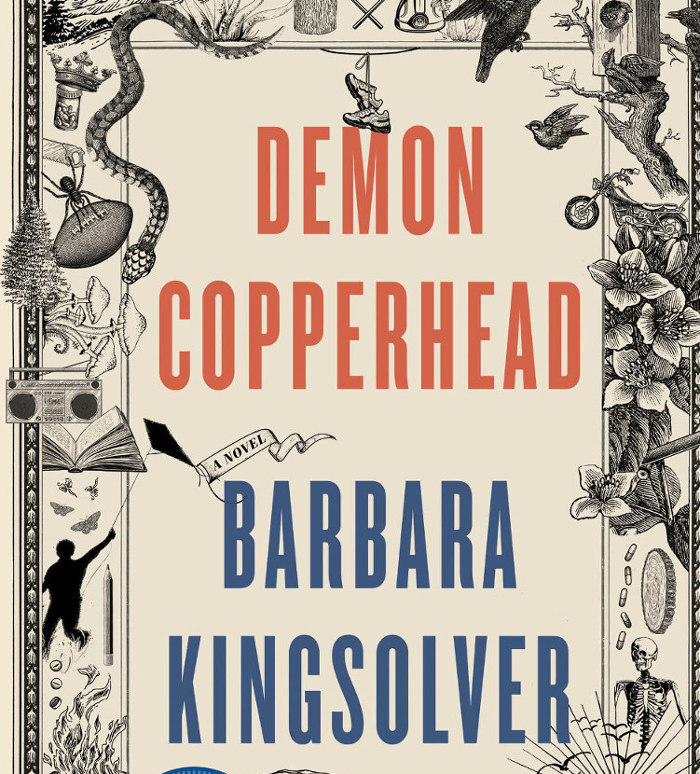Barbara Kingsolver’s latest novel, Demon Copperhead, embraces the world of Appalachia, in the eastern United States. It is the story of a young boy’s heroic struggle to survive the challenges life presents him. Damon Fields is born on the floor of a mobile home, to a drug-addicted teenage mother. All he had from his dead father was a head of fiery red hair, and the nickname “Copperhead” that would stick with him for life. Despite its overwhelming poverty, Appalachia is a place where people look after people, folks get in your business and everyone is pretty much in the same boat. Until it capsizes.
The story starts with Demon’s birth and ends in his early adulthood. We are taken through his childhood, mostly in foster care, in painstaking detail. The failure of the foster care system, the horrid ‘parents’ assigned his care, the complete failure of the society around him to notice the neglect and abuse. He endures not only the foster care system, but also child labour on a tobacco farm and in a toxic junkyard. But still Demon holds his head up, manages to put one foot in front of the other and, if not thrive, at least survive. It is the heartbreaking introduction of opioids and fentanyl that come closest to doing him in.
Kingsolver does not hold back in damning the opioid industry and Purdue Pharma which created and sold Oxycontin. Knowing full well that oxycontin was a highly addictive drug, yet marketing it as the opposite of that, the company ruthlessly targeted Appalachia for its higher rates of work-related injuries. (In 2017, a U.S. government report stated that opioid overdose deaths in Appalachia were 72% higher than other parts of the country.) Seeing the reality of addiction and how it ravages a society through Demon’s eyes made the experience very real to me. The author also takes aim at the negative stereotyping of the people of the region as lazy stupid hillbillies. As a native of Kentucky who currently lives Appalachian Virginia, she is well aware of the prejudice.
Much has been written about the comparison of this book to Charles Dickens’s David Copperfield. In the Acknowledgements, Kingsolver thanks Dickens for “his impassioned critique of institutional poverty and its damaging effects on children in his society.” She has, as she says, adapted his novel to her own time and place. She cleverly gave some of the characters very similar names and profiles.
For some reason, I was blissfully unaware of the connection to David Copperfield until I had finished the book. As I said to a friend I was discussing the book with, I’m glad I didn’t know. I think if I had, I would have been focused on making the comparisons and finding the similarities, rather than the story. Looking back now, after reading some of David Copperfield, I am reminded that the more things change, they often stay the same.
Like everything she has written, Kingsolver’s style is lyrical, humorous and captivating. Demon’s voice is consistent throughout. She completely inhabits this boy from childhood, through adolescence, to young adulthood, capturing every emotion. This can be a tough book to read, at least it was for me. There were some definite gut-punches along the way, like when I first realized opioids were coming into the story, or when he is placed in a neglectful abusive home. Having said that, I could not put it down. And I thought the ending almost perfect, poignant and hopeful. I will most likely read it again.












